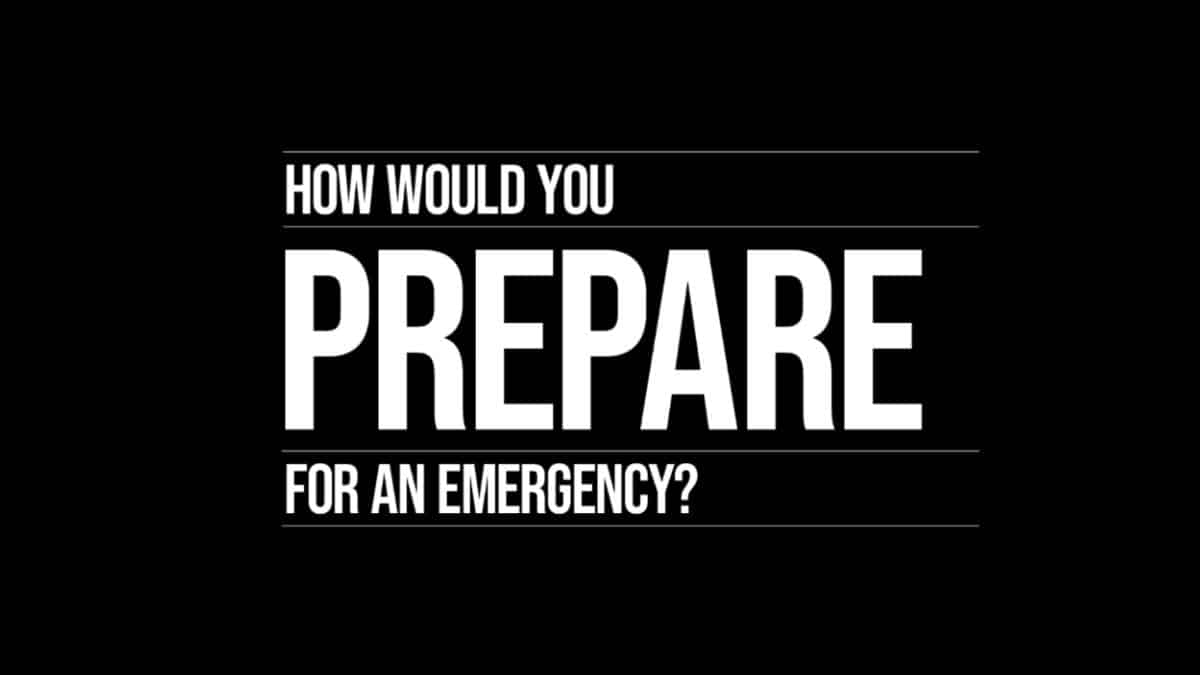
A government campaign suggests that we should have food, water, and emergency supplies ready in case of an emergency or crisis.

The government is advising people to have essential supplies ready for “worst-case-scenario” emergencies.
Their advice comes as part of a new campaign to make the country more resilient to various threats.
A poll has shown that only 15% of people have an emergency supply kit in their homes and more than 40% of people don’t have three days’ supplies of non-perishable food and water.
I’m presuming it’s more about the cost, rather than wanting to be prepared.
It’s not the first time we’ve been told to get prepared. In 2022/2023, we were warned of rolling blackouts, and it was suggested that we get essentials in then (luckily, that didn’t happen as they thought).
However, they are now warning people to prepare for any kind of emergency (both natural and human-related), including floods, storms, power cuts, communication cuts, cyber attacks, terrorism, and infectious diseases spread from other humans, animals, or plants.
What they say you need
They’ve suggested — clearly as conscious budgeting money-savers — that we should not buy everything in one go but build it up over time. How savvy of them!
In case of a power cut or water outage or where you’ve been told not to leave your home for safety reasons, 3 days of supplies is the recommendation.
3 days’ supply of essentials
Water
They suggest having enough drinking water for around 3 litres per person per day.
However, when you factor in hygiene and cooking and hygiene, the recommended amount is 10 litres per person per day.
It’s worth remembering that water in a bottle has a “best before” date, so if you buy it, you’ll need to use and replace it.
Cost: £2.90 for 10 litres (prices from Tesco) x 3 days = £8.70 per person for three days
Non-perishable food
Stock up on tinned meat, vegetables, and fruit. They’ve specifically said anything that doesn’t need cooking.
Also, include baby supplies and pet food if needed.
Cost: x2 each of basic baked beans, tinned ham, tinned peas, peach slices – yummy, and very basic, meal plan – £5.40 per person per day
Overall cost: around £25 per person for 3 days.
They have said that they don’t want people to stockpile, but we’ve always said that having a stockpile of food is a good idea.
It allows you to keep staples in case you can’t get to the shop or when your money gets low towards the end of the month.
You can also bulk buy, which saves in the long run.
You’re prepared in case anything happens.
Emergency kit essentials
Lighting and power: Battery or wind-up torches and portable power banks.
Communication: Battery or wind-up radios to get updates during power cuts.
First aid kit: Include waterproof plasters, bandages, antiseptic, eyewash, and more.
Hygiene supplies: Hand sanitiser and wet wipes.
Spare batteries: For torches, radios, and any medical equipment.
Baby supplies: Nappies and formula if necessary.
The new website, prepare.campaign.gov.uk, provides practical information for households to get ready for emergencies listed on the government’s national risk register, including natural disasters and potential conflicts.
The advice isn’t due to an immediate crisis but to ensure that people are prepared, allowing emergency services to focus on those most in need.





